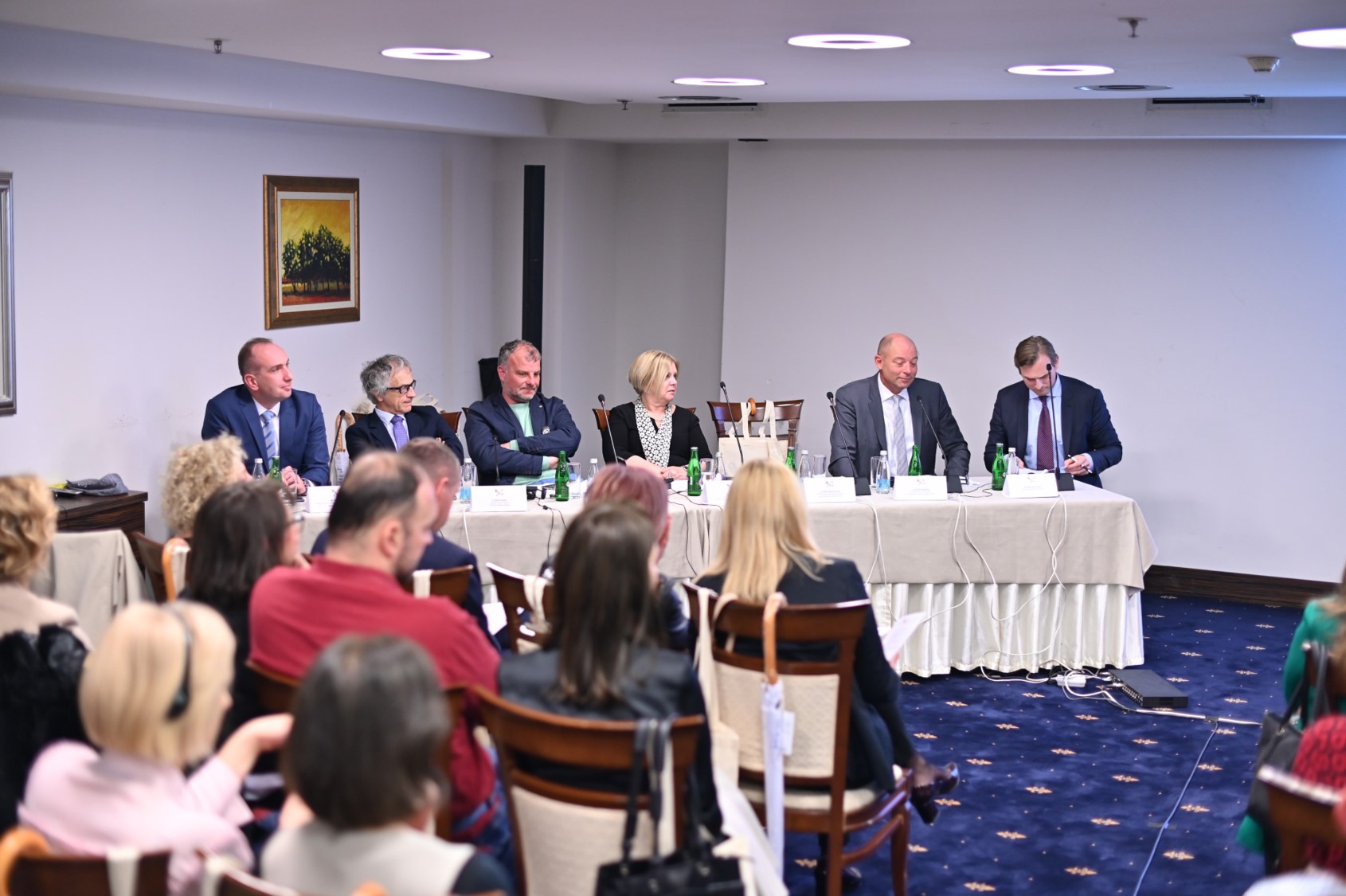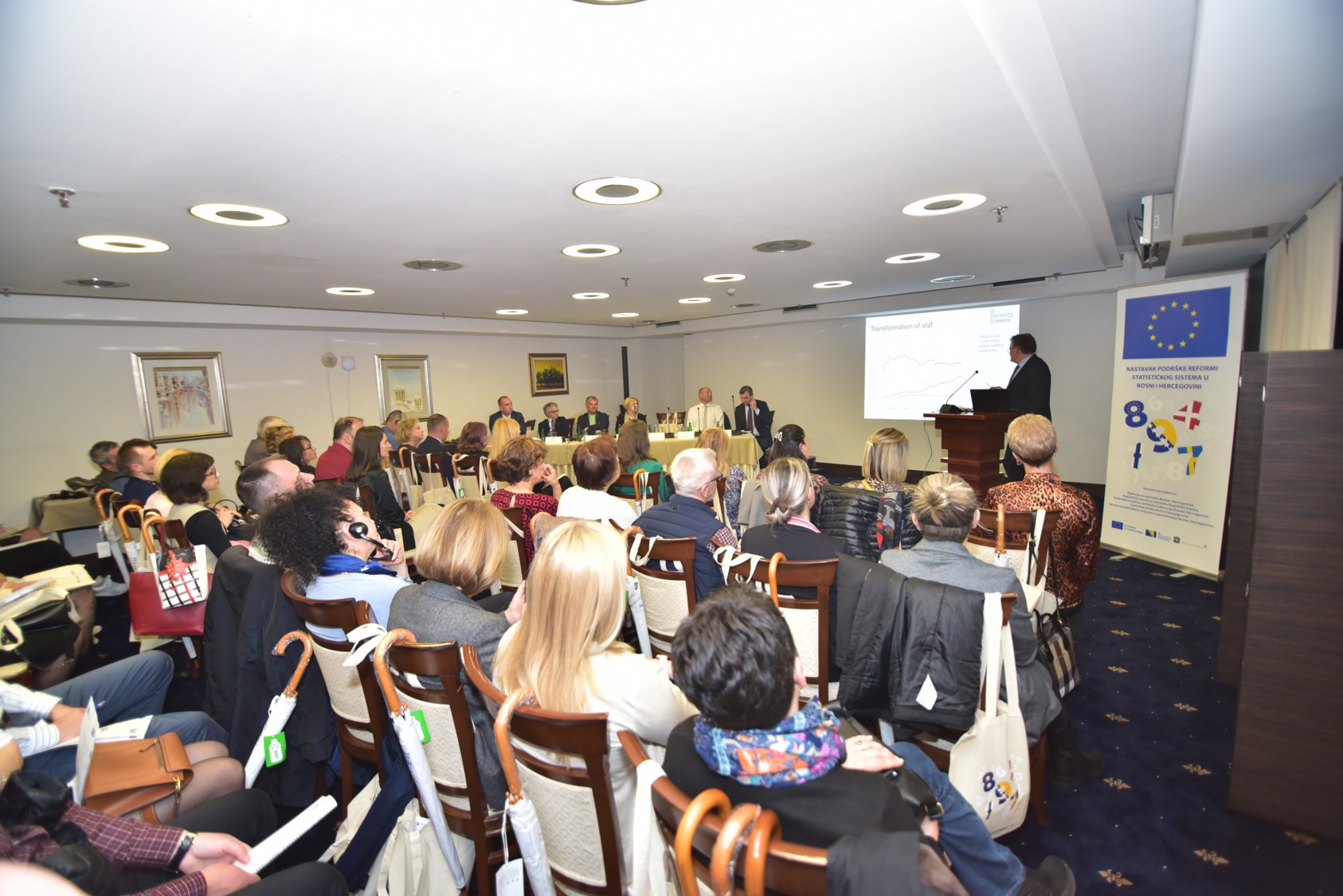The EU provides financial support for the improvement of the statistical system in Bosnia and Herzegovina
As a part of the continuous support of the European Union to the improvement of the statistical system of Bosnia and Herzegovina, a conference on the topic "Use of Administrative Data Sources in Statistics in Bosnia and Herzegovina" was held today in Sarajevo.

The goal of the conference was to inform representatives of BiH institutions at all levels of government about the advantages and potential disadvantages of using administrative data for the production of official statistics and to familiarize them with the best practices of EU member states.
The conference was organized within the framework of the Twinning project "Further Support to the Reform of Statistics System in BiH" and financed by the European Union in the amount of 1.7 million EUR. This project, among other things, provides support to the statistical system of BiH in transition towards the use of administrative data sources in the production of statistics and its harmonization with European standards.
"For Bosnia and Herzegovina, on its path to accession to the European Union, high-quality and diverse statistical data that are harmonized with EU regulations and standards are extremely important. The European Union continuously supports the statistical institutions in Bosnia and Herzegovina in the transition to a more intensive use of administrative data in the production of statistics", stated the Head of Operations Section I (Justice and Home Affairs, Public Administration Reform), Delegation of the EU to BiH Karel Lizerot and added "Data quality and improvement of statistics largely depend on the availability of data collected through statistical surveys from reporting units, but also on data available in the records of administrative bodies, i.e. institutions at all levels of government in Bosnia and Herzegovina. The experiences of using administrative data in the production of statistics that the European Union member countries have are very positive when it comes to quality and cost-effectiveness, so we want to transfer good statistical practices to BiH", Lizerot added.
In the last few years, there has been some progress in the availability of data necessary for the production of official statistics. At the same time, the administrative data sources available at different administrative levels in Bosnia and Herzegovina are recording progress through the transition from the traditional way of recording data to electronic records and systematic data management.

Vesna Ćužić, Project Leader on behalf of Bosnia and Herzegovina and Director of Agency for Statistics of BiH, spoke about the vision of using administrative data in the official statistics of BiH and the expected benefits of this project for Bosnia and Herzegovina: "Connecting all institutions and using available administrative data sources by authorized statistical institutions in BiH would certainly contribute to improving the quality and availability of statistical data in Bosnia and Herzegovina. Consequently, the burden on respondents and survey costs would be reduced, and the subject statisticians would use their time more efficiently - for data analysis instead of entering collected data. An additional advantage of using administrative data is the increase in compliance of BiH statistics with the EU acquis. In addition, electronic data collection methods would result in an increase in the efficiency of limited resources of statistical institutions and an increase in the amount of statistical data. From all of the above, it is clear how important this project is for all of us in Bosnia and Herzegovina", said Ćužić.
Director of the Methodology, Communication and Sales Department of Statistics Denmark Carsten Zangenberg pointed out that the purpose of producing official statistics using administrative data, instead of data collected through questionnaires, is to obtain better statistics at a lower price. "Better statistics enable more accurate analysis of policies and provide better opportunities for research, and for the benefit of the entire country. Statistics Denmark has been able to use administrative data since late 1960s and is still working on developing better methods in this area", said Carsten Zangenberg.
The experiences of EU countries regarding the use of administrative data for statistical purposes were also discussed by Mr. Jesper Ellemose Jensen, MS Project Leader, Chief Advisor, Statistics Denmark, Mr. Tomaž Smrekar, Director General of the Statistical Office of the Republic of Slovenia, Mr. Fahir Kanlić, Head of Department of Industry and Construction Statistics, Agency for Statistics of BiH and Mr. Rohan James Draper, Special Advisor, Statistics Denmark.
Planned activities in Bosnia and Herzegovina will be implemented by the Agency for Statistics of Bosnia and Herzegovina, the Federal Institute for Statistics of the FBiH, the Republic of Srpska Institute of Statistics and the Central Bank of BiH in cooperation with Statistics Denmark as leading partner and the partner statistical institutions of Finland, Sweden and Italy.

